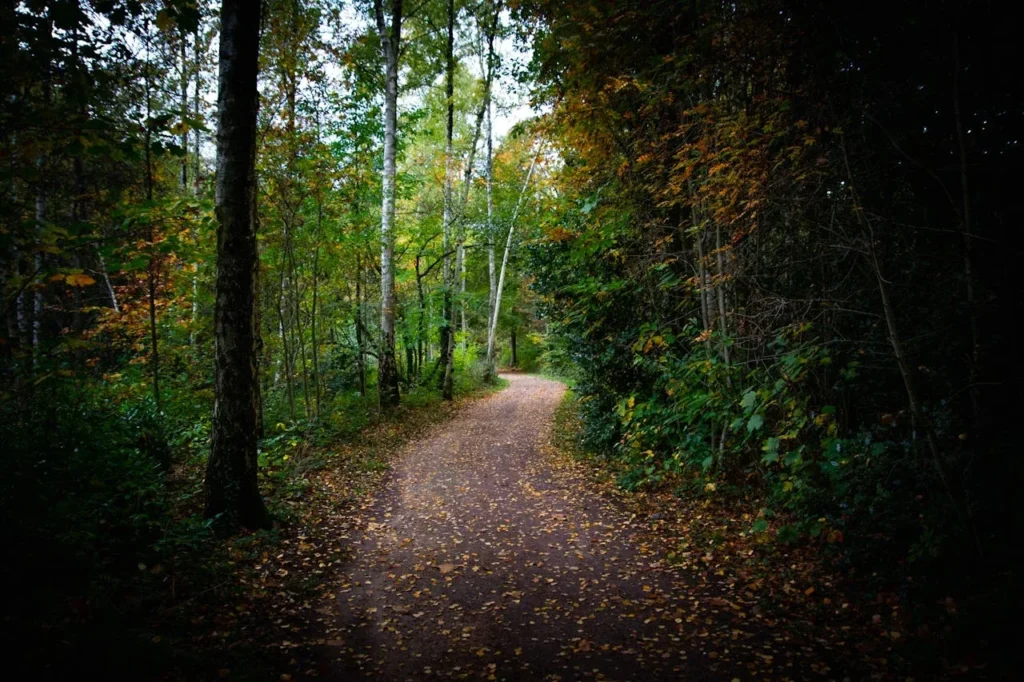Last Updated on July 22, 2025 by shawnshealth
Discover 7 health benefits of spending time in nature. Improve mental and physical health, boost immunity, and reduce stress with simple outdoor activities.
7 Surprising Health Benefits of Spending Time in Nature
In today’s tech-driven world, it’s easy to forget the simple joys of stepping outdoors. With most of us glued to screens and indoors like hermits, nature feels like an exotic vacation spot. But here’s the thing—research shows nature doesn’t just make you feel good, it’s practically magic for your health. Whether it’s strolling through a park, hiking in the woods, or just sitting in your backyard avoiding your neighbor’s lawnmower, spending time outside can dramatically improve your well-being.
In this blog, we’ll dive into 7 surprising ways nature acts like a life coach—minus the hefty fee—and why a little outdoor time might just be your new health hack.
How does nature boost mental clarity?
- Reduces mental fatigue and enhances focus.
- Promotes creativity by resetting the mind.
- Improves memory and cognitive function.
How does nature reduce physical stress?
- Lowers cortisol levels and regulates stress hormones.
- Encourages relaxation through natural surroundings.
- Supports recovery by activating the parasympathetic system.
Why is outdoor time key to wellness?
- Strengthens immune function with phytoncides.
- Enhances mental health and emotional balance.
- Promotes physical activity and overall vitality.
Table of Contents
Medical Disclaimer: This content is for informational purposes only. Consult a healthcare professional before making any health or fitness changes.
Amazon Affiliate Disclaimer: As an Amazon Associate, I earn from qualifying purchases.
My Thoughts on Nature and Health
This topic hits close to home for me. Spending time outside has been a game-changer in my own life. Whether it’s taking a walk through the woods, sitting by the water, or just getting some sun on my face during a busy day, I always feel better after some time in nature.
It’s not just about exercise or fresh air (though those help too). There’s something about being outdoors that clears my head and calms me down in a way nothing else does. I’ve found that even short breaks in nature help me think more clearly, sleep better, and just feel more like myself.
That’s really why I wrote this article—because I’ve experienced these benefits firsthand, and I think more people should know how powerful nature can be. You don’t need to hike a mountain to get the benefits either. A walk around the block, sitting under a tree, or spending a few quiet minutes in your backyard can do more for your health than you might expect.
If you haven’t made outdoor time part of your routine yet, give it a try. It doesn’t have to be perfect or planned. Just get out there, breathe, and let nature do its thing.
— Shawn
Now Let’s explore the 7 surprising benefits of spending time in nature!
1. Boosts Mental Health and Reduces Anxiety
One of the most well-documented benefits of nature is its powerful effect on mental health. Spending time outdoors reduces stress, anxiety, and symptoms of depression. This happens because natural environments promote a state of calm and relaxation, unlike the overstimulation we often experience in urban settings.
A study conducted by Stanford University found that participants who walked for 90 minutes in a natural environment, such as a forest or park, showed reduced activity in the prefrontal cortex, the part of the brain linked to rumination and depression.
Read my article for more information how exercise can significantly improve your mental health!

How Nature Helps Reduce Stress
The natural world has a unique way of calming the mind. The sound of birds chirping, the rustling of leaves, or the flow of a stream activates our parasympathetic nervous system, which is responsible for relaxation and stress recovery . This system helps counteract the fight-or-flight response we often feel when overwhelmed by daily life.
Nature also offers a form of “soft fascination,” meaning that it engages the mind without overwhelming it. This allows for mental recovery and can help alleviate feelings of stress and anxiety. The American Psychological Association highlights that exposure to nature can improve attention, lower stress, and enhance mood.
See this article, an American Psychological Association study on Nature’s ability to reduce stress.
LIft your spirits and check here for a humorous look at exercising in nature!
Check out this wonderful video short from UNC Health on spending time in nature and how it can make you healthier, inside and out!
2. Improves Physical Health and Fitness Levels
The physical benefits of being outdoors are often overlooked. Engaging in outdoor activities like hiking, biking, running, or even walking significantly improves cardiovascular health, strengthens muscles, and boosts endurance. Nature motivates us to stay active longer than indoor activities, thanks to the scenic surroundings and fresh air. Even low-impact activities such as gardening or strolling through a park can have a notable impact on your physical health.
According to the World Health Organization (WHO), insufficient physical activity is one of the leading risk factors for death worldwide, contributing to health conditions like heart disease, stroke, and diabetes. Nature encourages movement, making it easier for people to meet the recommended 150 minutes of moderate-intensity physical activity each week.
Check out my article on functional fitness moves to enhance your health and fitness.
A Natural Workout Environment
Unlike the artificial environment of a gym, exercising outdoors stimulates multiple senses. You feel the breeze, smell the fresh air, and enjoy the changing landscape, which can increase motivation and reduce feelings of fatigue. Research also shows that outdoor exercise may lead to higher levels of serotonin, the “feel-good” hormone, compared to exercising indoors.
Vitamin D, which you naturally obtain from sunlight, is another critical factor. Many people suffer from vitamin D deficiency due to excessive time spent indoors, especially during colder months. Regular exposure to sunlight improves vitamin D levels, which supports immune function, bone health, and mood stability. The American Heart Association also highlights how outdoor physical activity can help lower blood pressure and cholesterol, reducing the risk of heart disease.
You can link to this study: The American Heart Association which highlights that regular physical activity can help lower blood pressure and cholesterol, reducing the risk of heart disease.

3. Enhances Mental Clarity and Cognitive Function
Spending time in nature doesn’t just help you relax—it also improves cognitive function. Studies have found that individuals who spend more time outdoors perform better on tasks that require focus, memory, and problem-solving skills. This is partly because nature allows your brain to take a break from constant stimuli and distractions found in everyday life.
This “nature effect” helps reset your brain, enabling you to think more clearly and creatively. The calming and restorative effects of nature can counteract mental fatigue, which is often caused by prolonged periods of work or screen time.
Why Nature Makes You Smarter
Time outdoors reduces “mental clutter” and improves the brain’s ability to process information. A concept known as Attention Restoration Theory (ART) explains that natural environments restore our directed attention, which is often drained by the demands of modern life. As a result, time spent outdoors can improve concentration, creativity, and even academic performance.

4. Strengthens Your Immune System
Perhaps one of the most surprising health benefits of spending time in nature is its ability to strengthen your immune system. Trees and plants emit natural compounds called phytoncides, which help protect them from harmful insects and bacteria. When humans breathe in these phytoncides, our bodies respond by increasing the activity of white blood cells, particularly natural killer (NK) cells that play a key role in fighting infections and cancer.
Research conducted in Japan on the practice of shinrin-yoku, or forest bathing, found that people who spent time in forests showed increased NK cell activity and had higher levels of immune-boosting proteins for up to a week after their forest visits. This means that even short, regular exposures to nature can have lasting health benefits.
Forest Bathing for Immunity
Forest bathing (what I call “going outdoors”), which involves immersing oneself in a forest environment while being mindful of the sights, sounds, and smells, has become a popular practice in Japan and South Korea. Scientific studies have shown that people who practice forest bathing experience lower levels of inflammation, reduced blood pressure, and better immune function.

5. Improves Sleep Quality
A good night’s sleep is essential for overall health, and spending time outdoors can significantly improve sleep quality. Exposure to natural light, especially during the morning hours, helps regulate your circadian rhythm, which controls your sleep-wake cycle. This natural exposure to sunlight during the day leads to better sleep at night.
A study from the University of Colorado Boulder found that just a weekend of camping without exposure to artificial light was enough to reset participants’ internal clocks, allowing them to fall asleep earlier and sleep more soundly. Whether you’re camping, hiking, or just spending time in your backyard, exposure to natural light can enhance your sleep quality, leading to better physical and mental recovery.
Check out this article from the University of Colorado Boulder
How Nature Helps You Sleep Better
Outdoor environments also provide fresh air and physical activity, both of which contribute to restful sleep. Engaging in outdoor exercise, even for just 30 minutes a day, can increase your body’s production of melatonin, the hormone responsible for regulating sleep. Furthermore, the relaxation that comes from spending time in nature can help you fall asleep faster and improve the depth of your sleep.
Check out my article on the effects that lack of sleep can have on weight gain!

6. Encourages Social Connection and Interaction
Spending time outdoors doesn’t have to be a solitary experience. Whether you’re hiking with friends, playing sports in a park, or enjoying a family picnic, outdoor activities create opportunities for social interaction. Social connections are vital for mental and emotional well-being, and outdoor environments provide the perfect backdrop for bonding with others.
Social relationships are essential for reducing feelings of loneliness and improving overall happiness. Outdoor activities, in particular, allow people to engage in meaningful conversations without the distractions of technology.
Strengthening Relationships in Nature
Group activities such as hiking, group fitness classes, or even outdoor team sports encourage collaboration and teamwork, fostering a sense of community. Moreover, spending time outdoors with loved ones can deepen relationships, as it offers a more relaxed and intimate setting than the distractions of daily life.

7. Increases Mindfulness and Presence
The modern world is full of distractions, but spending time in nature helps us slow down and live in the moment. Nature encourages mindfulness, a practice that involves focusing your attention on the present, which has been shown to reduce stress, anxiety, and even physical pain. When you’re in nature, your senses are fully engaged—you notice the rustle of leaves, the sound of birds, and the feel of the earth beneath your feet.
According to the American Psychological Association, mindfulness practices like those encouraged by nature can improve emotional regulation and increase self-awareness.
For more information on meditation and mindfulness for stress reduction, check out this article.
Practicing Mindfulness in Nature
Mindfulness can be as simple as sitting on a bench and observing the world around you. The natural environment encourages reflection, helping you become more attuned to your thoughts and emotions. Whether you’re walking along a beach, sitting by a lake, or watching the clouds, being outdoors offers an ideal setting for practicing mindfulness and staying present in the moment.

Conclusion: Reconnect with Nature for a Healthier You
Spending time in nature is one of the simplest and most effective ways to boost your overall well-being. From reducing stress and improving mental clarity to strengthening your immune system and encouraging better sleep, the benefits of spending time outdoors are vast. Whether you’re hiking through the woods, enjoying a local park, or simply sitting in your backyard, even small doses of nature can have a lasting positive impact on your health.
Incorporating more outdoor time into your daily routine can be as easy as taking a walk during lunch or planning a weekend camping trip. Your body and mind will thank you for it!
Start your journey toward better health by making time for the great outdoors today!
🔥 Gear to Help You Achieve Your Health and Fitness Goals 💪
If you’re looking for tools to enhance your fitness journey, check out this. Explore top-rated fitness gear on Amazon to enhance your workouts. Check out the latest picks here! 🛒 to support your workouts and progress.
🚀 Find equipment designed to boost strength, endurance, and overall performance!
⚠️ Short disclaimer: As an Amazon Associate, I earn from qualifying purchases.
❓ Nature’s Health Benefits: Frequently Asked Questions
🌿 How does spending time in nature improve mental clarity?
- Exposure to green spaces reduces mental fatigue
- Natural sounds help calm the mind and improve focus
- Nature encourages mindfulness, boosting cognitive function
🍃 Can nature exposure boost the immune system?
- Regular outdoor time increases vitamin D production
- Phytoncides from plants enhance natural killer cell activity
- Fresh air and sunlight support overall immune resilience
🌞 How much time in nature is ideal for health benefits?
- Studies suggest at least 20 minutes daily
- Longer visits on weekends amplify stress reduction
- Quality matters more than quantity: mindful presence is key
🚶♀️ Does nature walking burn more calories than treadmill walking?
- Uneven terrain and fresh air increase calorie expenditure
- Natural light boosts metabolism compared to indoor gyms
- Nature walks often last longer due to enjoyment and engagement
🌺 How does nature affect sleep quality?
- Natural light exposure helps regulate circadian rhythms
- Outdoor activity increases melatonin production
- Reduced stress from nature leads to deeper, restorative sleep
🧘♂️ Can nature enhance meditation or relaxation practices?
- Natural settings improve relaxation responses
- Easier to reach meditative states with fewer distractions
- Enhanced sensory input deepens mindfulness experiences
🧠 Does being in nature support creativity and problem-solving?
- Nature restores attention and reduces mental exhaustion
- Diverse sensory input sparks new ideas and perspectives
- Studies link nature walks to improved divergent thinking
👫 How can nature improve social connections and wellbeing?
- Outdoor group activities boost mood and reduce loneliness
- Shared nature experiences strengthen bonds and empathy
- Natural settings foster positive communication and cooperation
Finally, be strong in the Lord and in the strength of His might. -Ephesians 6:10




